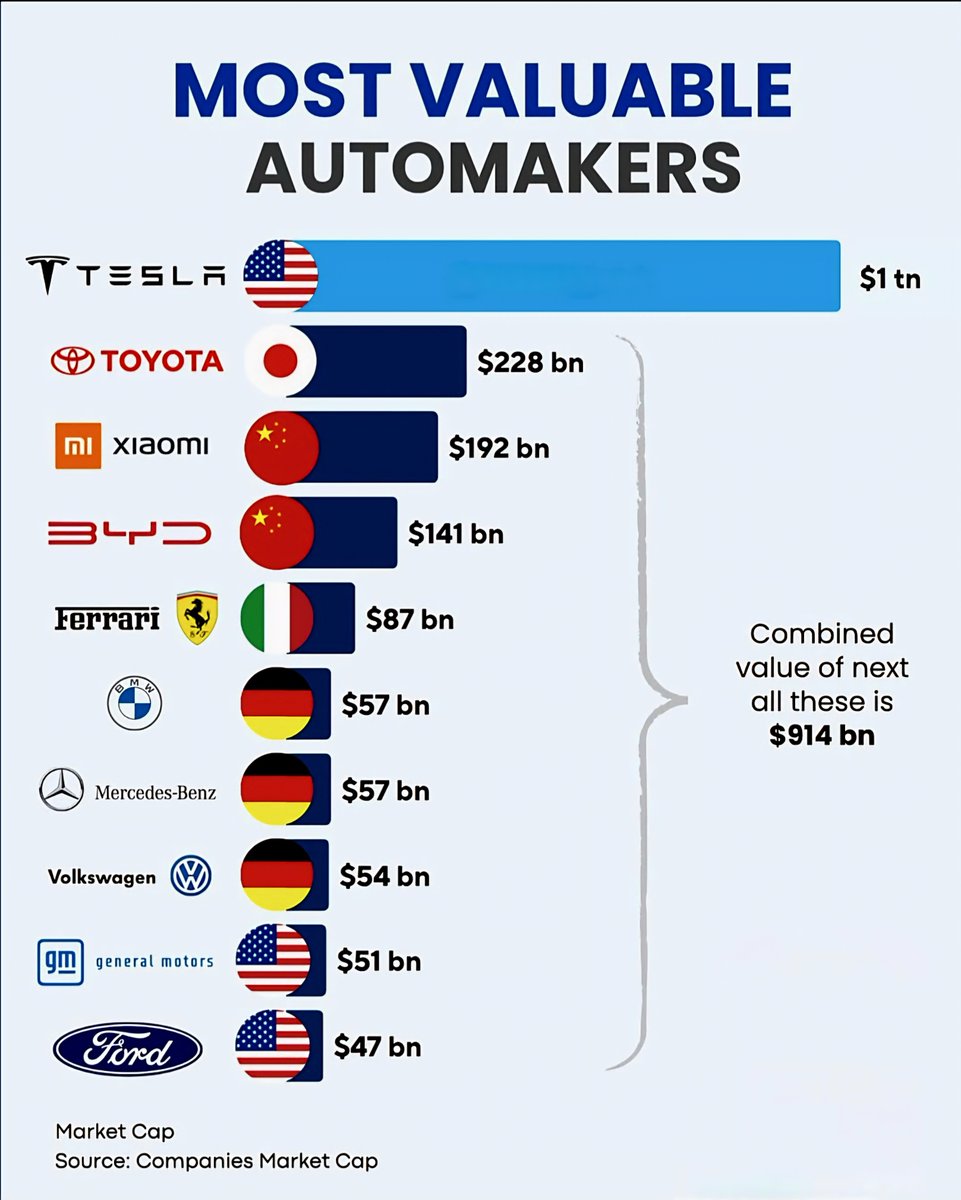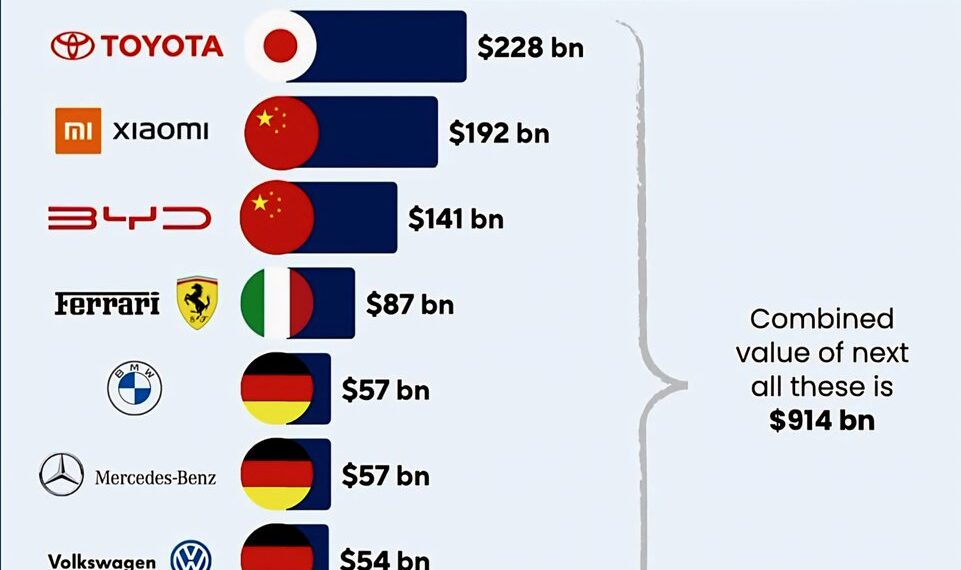Select Language:

Top 10 Most Valuable Automakers in 2025
1. Tesla Inc. — Leading the Electric Revolution
Tesla continues to dominate the automotive industry with a market valuation surpassing $900 billion in 2025. The company’s innovative approaches to electric vehicle (EV) technology, autonomous driving, and energy solutions cement its position at the top. Tesla’s widespread global presence, combined with new models targeting a broader demographic, has fueled its significant growth. The company’s focus on sustainable transportation remains a core element that keeps investors confident.
2. Toyota Motor Corporation — A Tradition of Reliability and Innovation
Toyota maintains its standing as a powerhouse in the global automotive market, valued at over $250 billion. The Japanese automaker has successfully transitioned to electric and hybrid vehicles while preserving its reputation for reliability and affordability. Toyota’s advancements in hydrogen fuel cell technology and its commitment to eco-friendly vehicles contribute to its enduring strength.
3. Volkswagen Group — Europe’s Automotive Titan
Volkswagen’s valuation has climbed past $150 billion in 2025, making it one of the most valuable car manufacturers worldwide. The automaker’s push towards electric mobility, with dedicated EV platforms and a broad lineup, has been pivotal. VW’s strategic investments in electric and autonomous vehicle startups, as well as its expansive global footprint, continue to bolster its market value.
4. BYD Company Ltd. — China’s Electric Powerhouse
BYD has emerged as a formidable player with a valuation approaching $130 billion. As China’s leading EV maker, BYD’s growth is driven by increasing domestic demand and expanding overseas markets. Its diversified portfolio includes electric buses, traditional vehicles, and renewable energy solutions. BYD’s strong government support and innovation in battery technology have catapulted it into the top-tier automakers.
5. Honda Motor Co., Ltd. — Balancing Tradition with Innovation
Honda has secured its spot on the list with a valuation exceeding $70 billion. Known for its reliable and fuel-efficient vehicles, Honda has ramped up investments in hybrid and electric models. The company’s focus on affordability and quality, coupled with recent developments in solid-state battery technology, positions it well for future growth.
6. General Motors Company — An Evolution in American Auto Manufacturing
GM continues a remarkable comeback, with a valuation exceeding $60 billion. Its aggressive pursuit of electric vehicles, including the Chevrolet Bolt EV and upcoming electric trucks, has garnered market attention. GM’s investments in self-driving technology and its new Ultium battery platform highlight its strategic transformation into an all-electric future.
7. Hyundai Motor Company — South Korea’s Automotive Innovator
Hyundai, valued at around $50 billion, has been making waves with its stylish design, advanced safety features, and competitive pricing. The company’s dedicated electric sub-brand, Ioniq, along with substantial investments in hydrogen fuel cells, demonstrates its commitment to alternative energy sources.
8. Stellantis — A Global Automotive Conglomerate
Formed from the merger of Fiat Chrysler and PSA Group, Stellantis boasts a diversified portfolio valued at approximately $40 billion. Its brands, including Jeep, Ram, Peugeot, and Citroën, are accelerating their electric and hybrid offerings to meet evolving consumer demands across multiple markets.
9. Mercedes-Benz Group AG — Luxury Meets Innovation
Mercedes-Benz’s valuation has surpassed $35 billion as it blends luxury with cutting-edge technology. Its focus on EV models under the EQ brand, alongside advancements in autonomous driving, positions Mercedes as a leader in premium electric mobility. The company’s emphasis on sustainability and luxury innovation appeals to high-end consumers globally.
10. Renault Group — Europe’s Affordable Electric Option
Renault rounds out the top 10 with a valuation nearing $25 billion. Focused on affordable electric mobility, Renault’s Zoe and Megane E-Tech models are popular across Europe. The company’s collaboration with Nissan and new ventures into smart mobility solutions keep it competitive amidst a rapidly changing industry landscape.
The shift towards electric and autonomous vehicles continues to reshape the landscape of the auto industry. These automakers’ strategic innovations, global expansions, and technological breakthroughs are key factors driving their current valuations in 2025.





